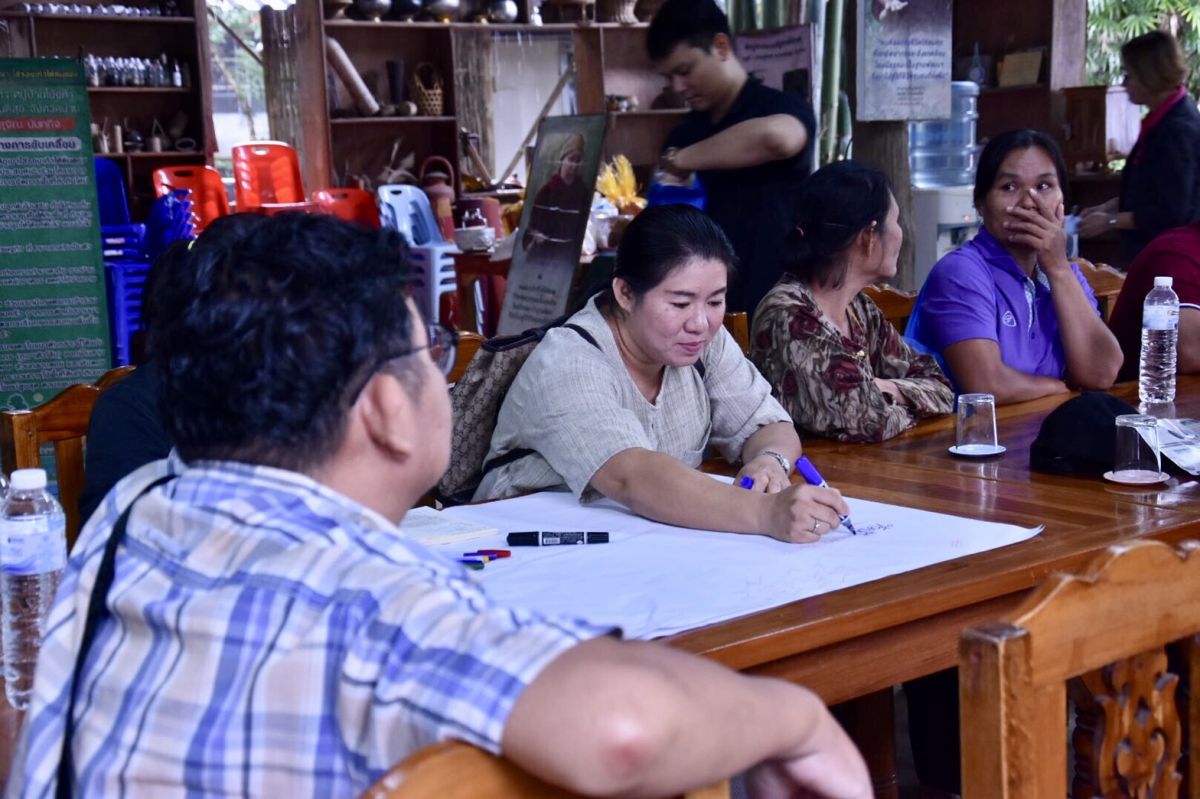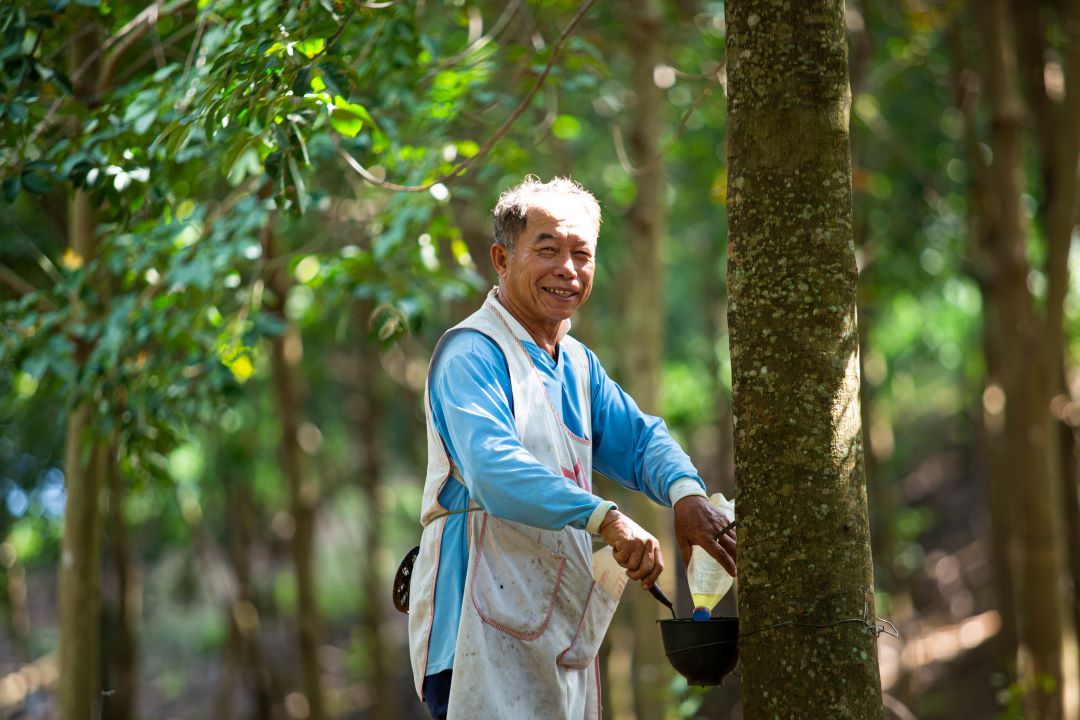Unlocking the market potential of traditional forest products in northern Thailand

The global shift away from disposable plastics is opening up a market space for biodegradable products made from forest plants and trees. Local communities living in or on the edge of forests are best equipped to harvest and craft these products sustainably relying on their specialized knowledge of the forests they depend on.
Through a training on market analysis and development of income-generating enterprises organized by RECOFTC, local communities can boost their existing knowledge with more effective business skills which in turn will provide an incentive and the resources to improve the communities’ long-term management of the forests they depend on.
“We have to look after the forest because it looks after us,” local resident from northern Thailand Naparee Sennanta said. “It provides us with life, and income.”
Sennanta was one of 22 local residents, including 12 women, who attended the training organized by RECOFTC in Santisuk district, in northern Thailand’s Nan province, from 17 to 19 September. During the training, Sennanta along with other participants explored the market potential for developing forest products and services, assessing various ideas for community-based enterprises and mapping out what they currently know of the respective value chains.
Sennanta said she received useful guidance on how to prepare for a business plan to expand the market for the disposable banana-leaf plates she and her fellow community members are planning to produce. “I believe there is potential for this product, because of the trend of reducing single-use plastic,” she said.

The attendees were all from villages in Santisuk district. They included farmers, teachers, and homemakers. Most of them were already involved in the production of forest products, whether for their own consumption or on a cottage-industry basis, and many had some experience of small business operations. All were interested in learning how to develop their local, specialized knowledge of the forest to improve their livelihoods, while maintaining sustainable, healthy, and productive forests.
The training is part of FLOURISH, a project that aims to develop business partnerships between communities and the private sector to achieve forest restoration, forest productivity, and improved livelihoods. When communities see a clear link between their forest management efforts and commercial benefits it boosts production-driven forest landscape restoration. This is a fundamental dynamic of the FLOURISH approach.
The project, run by RECOFTC and funded by the German government’s International Climate Initiative (IKI), is active in three landscapes in Thailand, Viet Nam, and Lao PDR.
Over the course of the three days, the aspiring community entrepreneurs in Nan province identified three promising forest products: Disposable plates and cups pressed from the leaves of wild banana plants and possible other forest trees; teak utensils or handicrafts from branches that are often discarded by the timber industry; and bamboo seedling production meant to supply reforestation programmes.

“If smallholders can process small pieces of timber, or add value to other parts such as branches or stumps, this can increase the overall value of the teak they produce,” said Luan Chanmuang, a teak smallholder. “However, smallholders often lack background information and knowledge about markets, and about processing methods,” he said.

Participants said the event was valuable not just in terms of the skills learned but also for the connections made. “I gained knowledge and information about being an entrepreneur, and I made some new contacts to share any question or knowledge in the future,” Chanmuang said.
Eakkaphop Sutthakhet, another participant and resident, agreed. “I made new friends and network connections,” he said. “I also got a chance to learn facilitation and training skills.”
Taking their skills forward, the members of the local communities in Santisuk district participating at the training are hoping to receive support from new partners on research, product development, and product design.
“Accessing markets is difficult because it requires both understanding the principles and knowing how to implement them. So far there are no organizations that provide support like this.” Sutthakhet added. “I hope to get more support from RECOFTC in the future and believe they can help us gain better market access.”

